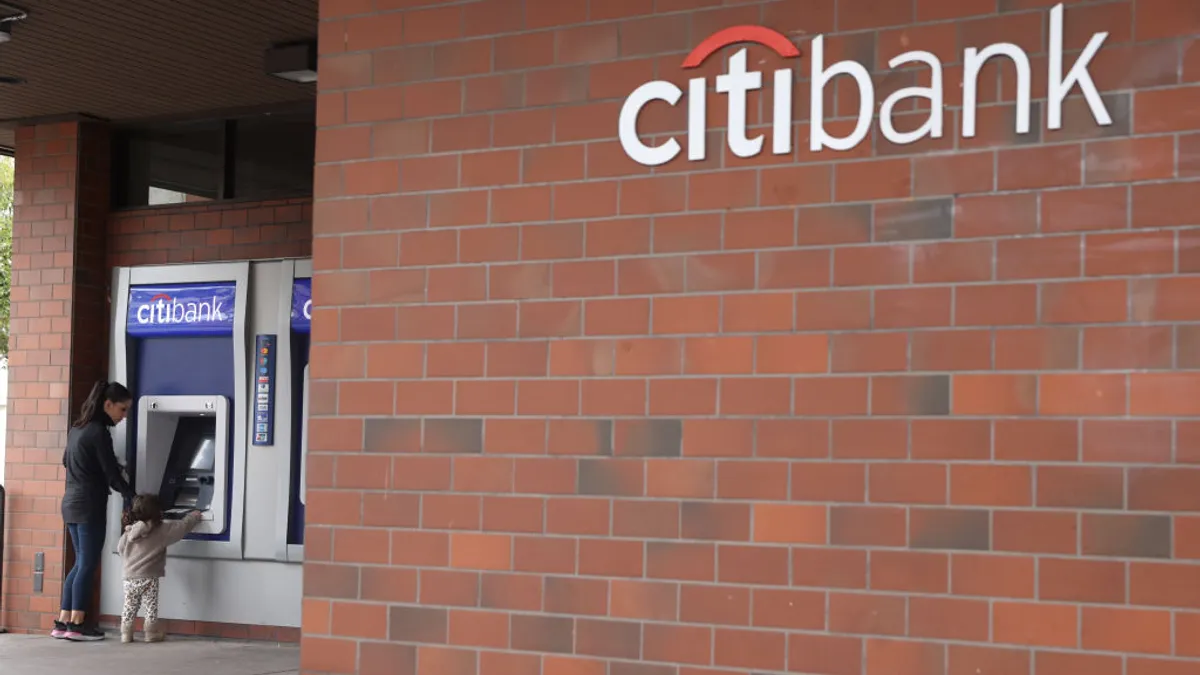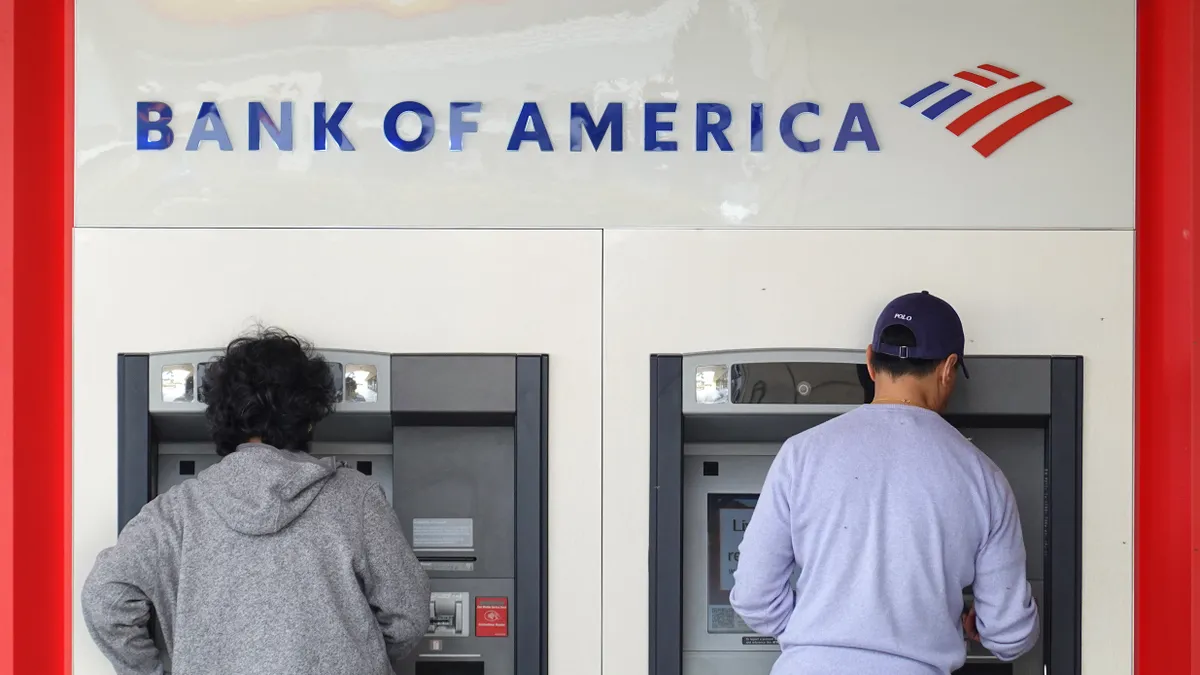Elon Musk last week unveiled a sweeping rebrand of Twitter, the social media site he acquired for $44 billion in October.
The billionaire replaced the platform’s iconic bird logo with an ‘X,’ the site’s new name and reflection of his mission for the site to morph into an “everything app.”
It appears Musk wants banking and payments to play a central role in the platform’s revamp. He told employees in November he wanted the site’s users to maintain a cash balance on the platform in a move that would turn the site into “the people’s financial institution.”
While vague, the platform’s CEO, Linda Yaccarino, reiterated X’s financial ambitions in a post last week.
“X is the future state of unlimited interactivity — centered in audio, video, messaging, payments/banking — creating a global marketplace for ideas, goods, services, and opportunities,” she wrote. “Powered by AI, X will connect us all in ways we’re just beginning to imagine.”
The rebrand harkens to Musk’s payments origins. The entrepreneur co-founded online bank X.com in 1999 before it merged with another business to become PayPal.
But how should banks view Musk’s ambitious plans for X? The tech entrepreneur’s intent to bring the social media platform into the banking and payments landscape presents both opportunities and risks for traditional banks, experts said.
Fear of missing out
Banks should be eager to seek partnerships with X, said Joe Camberato, CEO of fintech marketplace National Business Capital.
“If banks hesitate, competitors could jump in and seize the opportunity, or X might develop these services on its own,” he said. “Elon Musk's determination and track record of overcoming obstacles — just look at Tesla and SpaceX — make it clear that he doesn't back down from challenges."
Musk has not shed light on the potential depository nature of X. Many nonbanks that offer bank-like services partner with legacy institutions to do so, leveraging a firm’s charter and regulatory expertise to offer consumers standard bank products and Federal Deposit Insurance Corp. insurance.
It’s not clear if X’s quest to become “the people’s financial institution” will encompass a bank partnership or an attempt to gain its own bank charter.
Banks looking to benefit from the former option, however, should exercise caution, Camberato said.
"Interested banks should be cautious about understanding the nature of their partnership with X, whether it's for the long or short term,” he said.
Potential partner banks should be prepared for the possibility that X could eventually develop solutions independently, leveraging better control, economics and technology, he said.
“Banks tend to move slowly, and might not be as tech-savvy as X, so they should be ready to adapt swiftly and collaborate in order to capitalize on any potential partnerships,” Camberato said.
Some banks might be enticed to partner with the platform if it maintains a high level of users and gains consumer and public trust, said Joe Davey, a partner at technology consulting company West Monroe Partners.
Davey, however, said he doesn’t think the platform poses a significant threat to traditional banks.
“Right now, it is safe to say the only banks that would want to partner with X are those that are addicted to risk or based in countries sanctioned by [the Office of Foreign Assets Control],” he said. “Given the instability of the company and its leadership, there is very little for banks to hold onto. At best, it will emerge as a friendly e-commerce enabler that won’t steal their deposits or lure away clients.”
Winning over regulators
Adding financial services products to X will be an uphill battle for Musk, who will likely face challenges obtaining regulatory approvals, charters and licenses in all states, Davey said.
The San Francisco-based firm has applied for money transmitter licenses in every U.S. state and territory, according to a filing with the Financial Crimes Enforcement Network.
So far, the company has obtained money transmitter licenses in Arizona, Michigan, Missouri and New Hampshire, according to Payments Dive.
Musk has told investors he’s aiming to earn $1.3 billion in payment revenue by 2028, according to the Financial Times.
“Like any traditional bank or payments platform, they would be regulated by the Federal Reserve and must comply with payments standards operated by the Fed or [Office of the Comptroller of the Currency] as a bank,” Davey said.
Musk’s lofty vision for the platform means it will likely fall under the purview of multiple government agencies, he added.
“Given the breadth of the X vision, it is probably easier to say what agency will not regulate it,” Davey said.
There’s also the artificial intelligence component to X’s plans. The firm’s goal to offer financial services products “powered by AI” could further increase regulatory scrutiny amid growing calls for agencies to craft guardrails around the development of the technology.
“The banking sector is heavily regulated in terms of licensing and compliance,” Camberato said. “[Musk] will have to collaborate with the right partners and navigate the approval process. While AI is already being used and tested by banks, any new financial services backed by AI may undergo scrutiny from regulators."
Tough road ahead?
Other large tech firms have tried to fold financial services products into their platforms in an attempt to deepen relationships with existing customers and draw new ones, but with little success.
Facebook’s cryptocurrency project, Diem, formerly known as Libra, faced global backlash from regulators and politicians, when it was announced in 2019.
Amid widespread criticism, the project’s partners, including Stripe, Mastercard and Visa, dropped out before Meta CEO Mark Zuckerberg’s plans to bring cross-border remittances to the social media site were realized.
Silvergate Bank, which had agreed in May 2021 to be the exclusive issuer of the Diem USD stablecoin and to manage the currency reserve, ended up purchasing the Diem Association’s assets last year for $182 million.
The La Jolla, California-based crypto bank shuttered operations in March, following months of financial turmoil.
Google has also tried to break into the banking arena. The company in 2019 unveiled a plan to offer consumer checking accounts in partnership with Citi and Stanford Federal Credit Union. The venture garnered partnerships with nine more firms before the tech giant ultimately abandoned the project.























